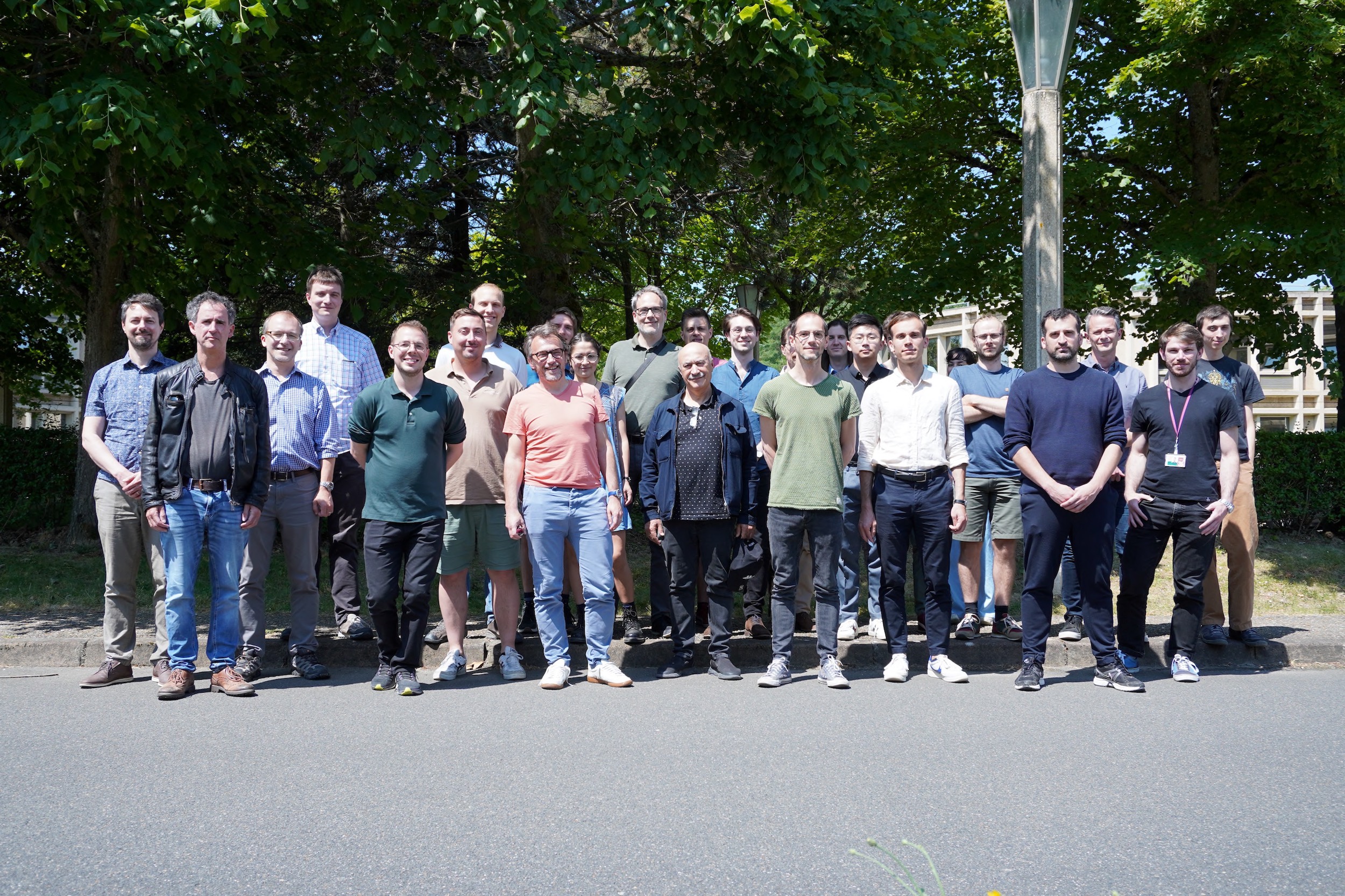Automated tools for many-body theory
5-8 June 2023
PROGRAM  ProgramESNTaToolsMBTvf5June2023.pdf
ProgramESNTaToolsMBTvf5June2023.pdf
Automated tools for many-body theory
Organizers: P. Arthuis (TU Darmstadt, EMMI GSI), T. Duguet (CEA DPhN,
), F. A. Evangelista (Emory Univ., Atlanta, Georgia)
The main goals of the workshop are:
1. To introduce attendants to different approaches to computer-aided derivation techniques for many-body theory,
2. To exchange ideas regarding state-of-the-art automatic derivation methods between quantum chemists and nuclear physicists,
3. To discuss open problems in the field of automatic derivation, including the factorization of tensor contractions and identification of identical terms,
4. To identify ways to make current automatic derivation tools interoperable as a way to validate, benchmark, and expand the capabilities of current codes.
The first session (morning) is devoted to introductory presentations to inform the local research community on the state-of-the-art approaches developed to tackle the many-body problem.
The following sessions are focused on specific uses of automated derivation methods.
Introductory Lecture
Francesco Evangelista (Emory University) (chemistry) An Introduction to the History of Computer-Aided Methods in Quantum Chemistry
 TalkFEvangelista_ESNT5june2023.pdf
TalkFEvangelista_ESNT5june2023.pdf
Talks [Chemistry: Ch. ; Condensed Matter CM ; Nuclear Physics : NP ]
• Pierre Arthuis (TU Darmstadt) (NP) Automated generation and evaluation of diagrams at play in various many-body methods
 TalkPArthuis_ESNT5june2023.pdf
TalkPArthuis_ESNT5june2023.pdf
• Guo Chen (Rice University) (Ch) Symbolic solution for computational quantum many-body theory development
• Kris van Houcke (Ecole Normale Supérieure) (CM) Bold diagrammatic Monte Carlo
 TalkKvanHoucke_ESNT5june2023.pdf
TalkKvanHoucke_ESNT5june2023.pdf
• Andreas Köhn (University of Stuttgart) (Ch) Towards an efficient implementation of internally contracted coupled-cluster methods
• Alexander Tichai (TU Darmstadt) (NP) Symmetry reduction of tensor networks in many-body theory
 TalkATichai_ESNT6june2023.pdf
TalkATichai_ESNT6june2023.pdf
• Mihály Kállay (Budapest Univ. of Technology and Economics) (Ch) String-based methods for state-selective multi reference coupled cluster
• Anastasios Papadopoulos (Max-Planck-Institut für Kohlenforschung) (Ch) Automatic generation of computer codes for correlated wavefunction calculations
 TalkAPapadopoulos_ESNT6june2023.pdf
TalkAPapadopoulos_ESNT6june2023.pdf
• Martijn Reitsma and Yuli Chamorro Mena (University of Groningen) (Atomic phys.) Relativistic coupled cluster calculations for atomic spectra
 TalkMReitsma_ESNT7june2023.pdf
TalkMReitsma_ESNT7june2023.pdf  TalkYChamorro_ESNT7june2023.pdf
TalkYChamorro_ESNT7june2023.pdf
• Nicholas Rubin (Google) (Quantum Computing) A quantum computing perspective on many-body methods
 TalkNRubin_ESNT7juin2023.pdf
TalkNRubin_ESNT7juin2023.pdf
• Christian Drischler (Ohio University) (NP) Automated code generation for Many-Body Perturbation Theory diagrams
 TalkCDrischler_ESNT7june2023.pdf
TalkCDrischler_ESNT7june2023.pdf
• Michael Hanrath (Cologne University) (Ch) Generation of arbitrary order open-shell coupled cluster
 TalkMHanrath_ESNT7june2023.pdf
TalkMHanrath_ESNT7june2023.pdf
• Francesco Evangelista (Emory Univ.) (Ch) Automatic derivation of fermionic many-body theories based on general Fermi vacua
 TalkFEvangelista_ESNT8june2023.pdf
TalkFEvangelista_ESNT8june2023.pdf
• Matthias Heinz (TU Darmstadt) (NP) Diagrammatic resummations for the in-medium similarity renormalisation group method
• Eduard Valeev (Virginia Tech) (Ch) Symbolic algebra manipulations for quantum many-body physics
GROUP PHOTOGRAPH (click to enlarge)
Schedule
|
Monday 5 June |
Tuesday 6 June |
Wed. 7 June |
Thursday 8 June |
||
| 9h15 | Welcome | ||||
|
9h30 |
F. Evangelista |
9h30 | A. Köhn | N. Rubin | F. Evangelista |
| 10h45 | Break | 10h30 | Break | Break | Break |
| 11h15 |
P. Arthuis |
11h | A. Tichai |
M. Reitsma/ Y. Chamorro Mena |
M. Heinz |
| 12h30 |
Lunch |
12h |
Lunch |
Lunch | Lunch |
| 14h | G. Chen | 13h30 | M. Kállay | C. Drischler | E. Valeev |
| 15h | Break | 14h30 | Break | Break | Break |
| 15h30 | K. van Houcke | 15h |
A. Papadopoulos |
M. Hanrath | End |
| 16h30 | End | 16h |
Discussions |
Discussions | |
|
|
17h |
End |
End |
|
Retour accueil ESNT Back to the ESNT page
Création-contact Web ESNT : Valérie Lapoux



